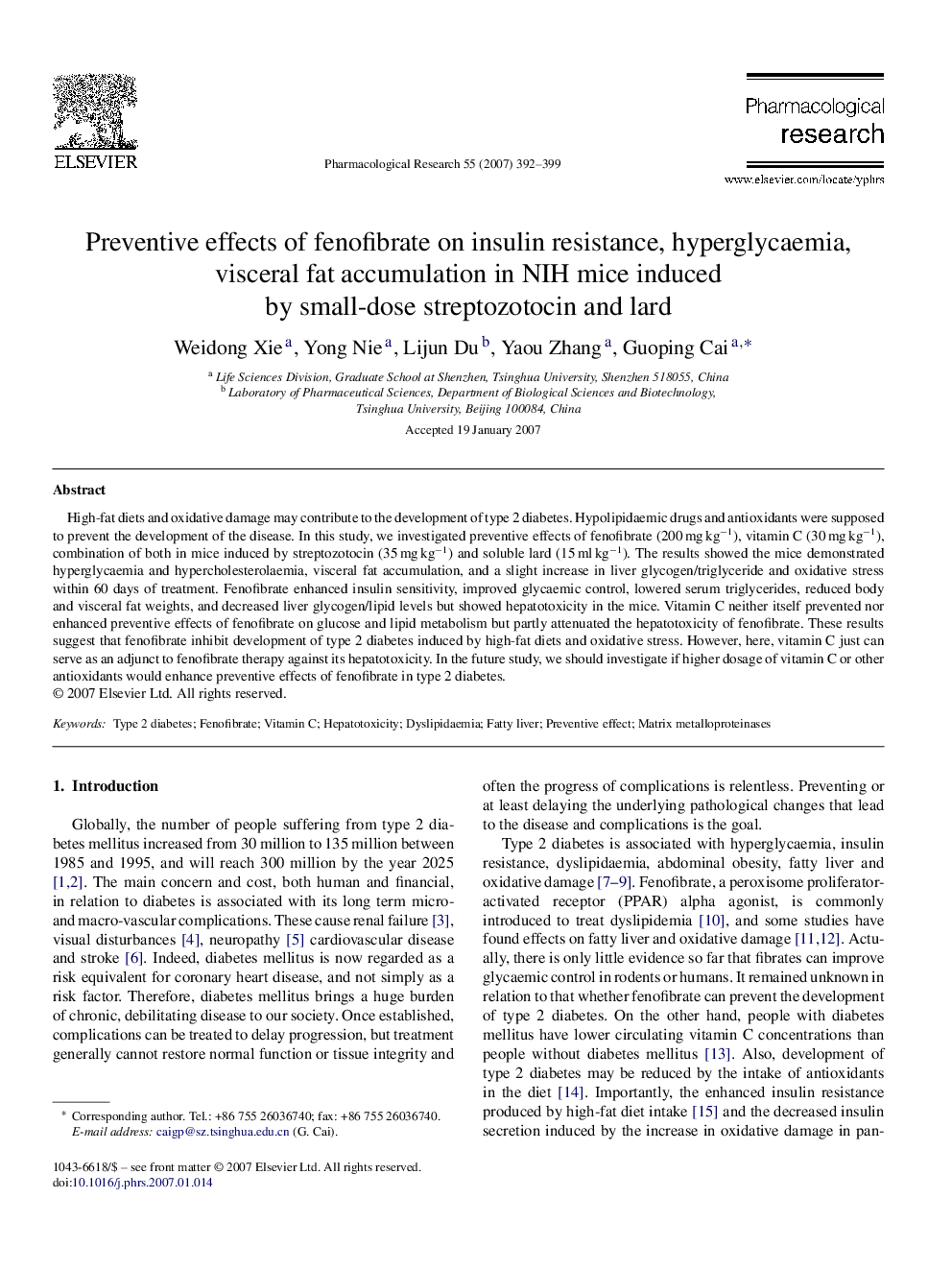| Article ID | Journal | Published Year | Pages | File Type |
|---|---|---|---|---|
| 2561809 | Pharmacological Research | 2007 | 8 Pages |
High-fat diets and oxidative damage may contribute to the development of type 2 diabetes. Hypolipidaemic drugs and antioxidants were supposed to prevent the development of the disease. In this study, we investigated preventive effects of fenofibrate (200 mg kg−1), vitamin C (30 mg kg−1), combination of both in mice induced by streptozotocin (35 mg kg−1) and soluble lard (15 ml kg−1). The results showed the mice demonstrated hyperglycaemia and hypercholesterolaemia, visceral fat accumulation, and a slight increase in liver glycogen/triglyceride and oxidative stress within 60 days of treatment. Fenofibrate enhanced insulin sensitivity, improved glycaemic control, lowered serum triglycerides, reduced body and visceral fat weights, and decreased liver glycogen/lipid levels but showed hepatotoxicity in the mice. Vitamin C neither itself prevented nor enhanced preventive effects of fenofibrate on glucose and lipid metabolism but partly attenuated the hepatotoxicity of fenofibrate. These results suggest that fenofibrate inhibit development of type 2 diabetes induced by high-fat diets and oxidative stress. However, here, vitamin C just can serve as an adjunct to fenofibrate therapy against its hepatotoxicity. In the future study, we should investigate if higher dosage of vitamin C or other antioxidants would enhance preventive effects of fenofibrate in type 2 diabetes.
